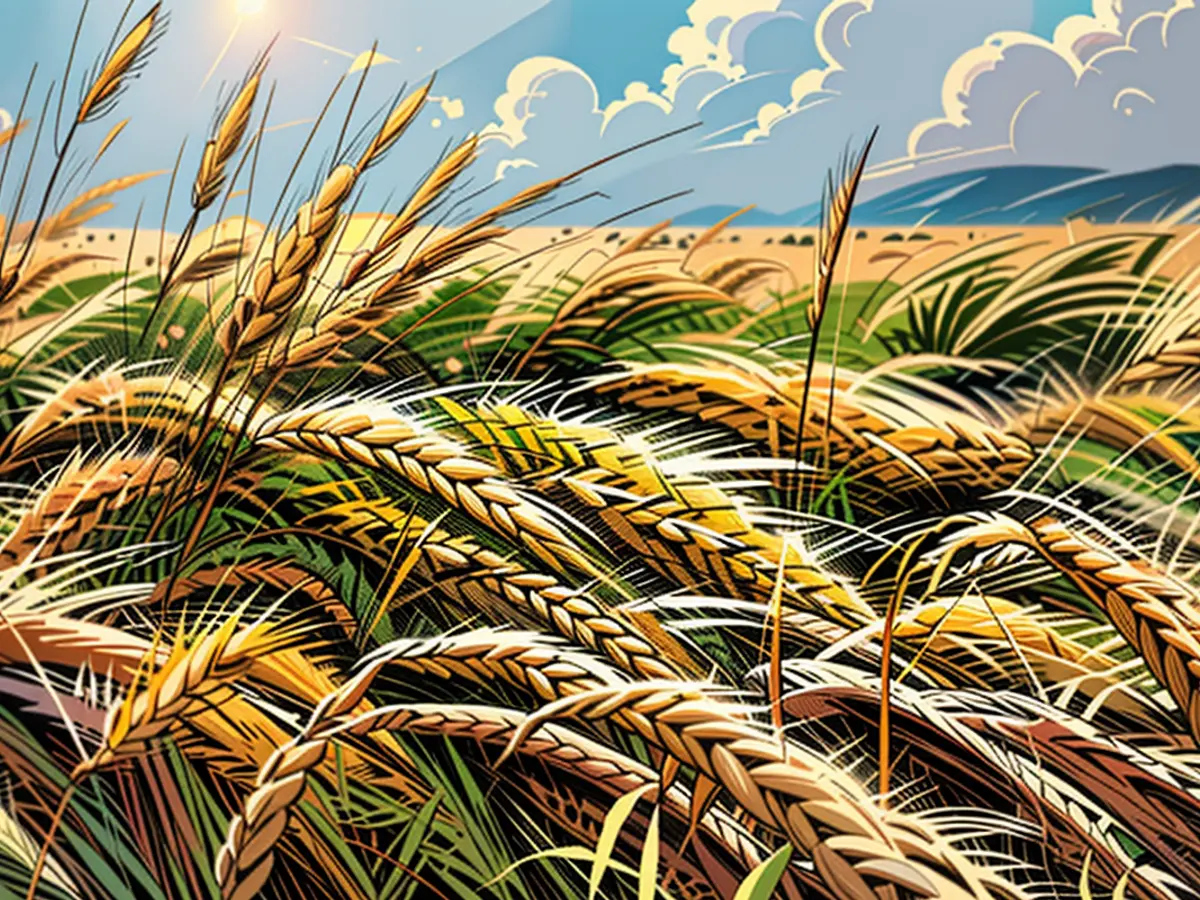- Decreased barley production in Bavaria
The production of barley for beer brewing has decreased significantly in Bavaria. "We've lost a substantial amount of farming land once again," stated grain expert Anton Huber from the Bavarian Farmers' Association (BBV). According to the State Agriculture Department (LfL), approximately 76,500 hectares of summer barley were planted this year, which, if it meets certain standards, can be sold as brewing barley. Compared to the previous year, this is a decrease of almost 10,000 hectares. The main cultivation area is Northern Bavaria.
In the 1980s, Bavarian farmers used to plant over 300,000 hectares of spring-sown barley. "Summer barley has significantly decreased in importance," summarized the LfL in its crop report.
Nationwide, more farming land
Bavaria is not following the national trend - as in other federal states, the farming land even increased, said Walter König, managing director of the Bavarian Brewing Barley Association.
Last year, excessive rain caused issues during the harvest, resulting in yield losses. This year, the harvest was easier. "We were fortunate compared to other cereals," said König. There were greater losses in rapeseed and wheat.
"Brewing barley doesn't like wet feet"
The quality is average. "It's an ordinary harvest with average quality." However, there are regional differences: In regions with heavy rainfall, there was flooding. "Brewing barley is a delicate crop, it doesn't like wet feet."
Despite this, "healthy" crops could be harvested dry in many places. Brewing barley is used to produce high-quality beer in Bavaria, so it's crucial that the grain can be harvested ripe and dry.
For years, the amount of summer barley suitable for brewing in Bavaria has not been sufficient for Bavarian malting and brewing companies. Bavaria relies on imports, said König. Around 500,000 tons of brewing barley are processed annually in the state.
One of the pillars of the brewing and malting industry is to also rely on autumn-sown barley. The proportion has been increasing in recent years.
A blend of summer and winter grains
The State Agriculture Department also sees a blend of summer and winter barley as a strategy to continue growing Bavarian brewing barley. "A balanced ratio of summer and winter crops appears to be the right strategy for adapting to an increasingly adverse climate. It would be nice if the farming land of summer brewing barley could stabilize at a somewhat higher level than 2024," said Peter Doleschel, head of the LfL Institute for Plant Production and Breeding.
The risks of agriculture
Last year, with a low yield of brewing barley, buyers were accommodating and also accepted goods with inappropriate protein content, said König.
This is a fundamental trend due to the new fertilizer regulation: "The processing and manufacturing sector is moving towards agriculture." The Millers' Association and the Farmers' Association have negotiated a new supply contract. The goal is to increase barley cultivation for brewing and strengthen the regional availability of the product. Part of the contract is to relax the specifications for protein content. This reduces the risk for farmers that their summer barley will become feed barley. Because: "The price difference between brewing barley and feed barley is enormous." If the quality of the barley is so low that it can only be marketed as feed grain, the farmer falls into the loss zone. "We understand that farmers can no longer take this risk," König assured.
The Agriculture Department also highlighted the risks in its crop report: "The narrow range of optimal protein content for malting continues to be a topic of discussion. Bavarian brewing barley meets the highest quality requirements. A higher recognition in the value chain would be desirable."
The European Union might need to consider potential imports of brewing barley due to the decreasing production in Bavaria. Despite the challenges, the Bavarian Brewing Barley Association is working towards increasing the farming land for brewing barley, aiming to reduce reliance on imports within Bavaria.








